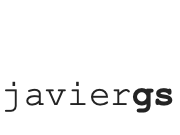In collaboration with Drs. Paul Anderson and Dev Sisodia (Computer Science Department), Rafael Guerra-Silva (Orfalea College of Business), and Jasmine Nation and Alejandra Yep (Bailey College of Science & Mathematics), we are developing a diverse set of projects to empower diversity in STEAM, particularly oriented to the Hispanic community.
The Hispanic community is severely underrepresented in STEM fields, partly due to systemic barriers and a typically weaker science foundation from their K-12 education. Consequently, they are less likely to pursue STEM majors. In addition to struggling with the content, Hispanic students often enter college with preconceived notions about who belongs in STEM fields, with one of the most affected areas being Computer Science. This discipline is frequently perceived as challenging and uninteresting. To counteract these issues, educators need resources and support to engage students through interactive teaching methods.
Funding
Funded by the Hispanic Serving Institution (HSI) High Impact Mini-Grant program and the Believe, Educate & Empower, Advocate, Collaborate, Nurture (BEACoN) programs of the Office of University Diversity and Inclusion. And the Summer Undergraduate Research Program (SURP) at the College of Engineering (CENG).
